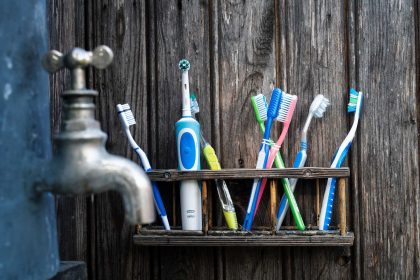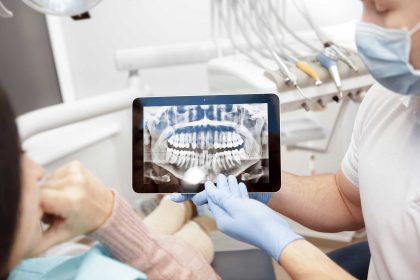People avoid the dentist for a number of reasons: they’re anxious that they might need treatment and they’re afraid it will hurt; they have a fear of needles, dental drills, probes, gag reflex, or x-rays; or they might even be embarrassed about the condition of their teeth and gums, and they don’t want to be scolded or judged by the dentist. But here’s the thing:
If you don’t go to the dentist, minor issues that could be easily resolved can escalate until they require fillings, root canals, tooth extractions, or complicated gum and bone surgeries. You might also miss early warning signs of major health issues such as cancer, heart disease, diabetes, and other chronic illnesses that have been linked to oral health.
There’s really no need avoid the dentist. Our fears are generally much worse than the reality, and a good dentist will be happy to work with you to alleviate any concerns.
Why do people avoid the dentist?
People are often anxious or fearful because they expect pain from the dentist. But the opposite is true: the dentist is there to take your pain away, or to prevent pain from occurring in the first place. If you were to make regular visits to the dentist—once or twice a year for checkups and cleanings—and to follow a good oral hygiene regimen at home, then the odds are good that you’d be able to avoid all the problems that have you worried.
For many people, though, those problems have already started. They’ve put off their dental visits until the pain is already almost unbearable. They have advanced tooth decay or periodontitis. It’s hard to chew their food. Their breath is bad. While they might be fearful of the procedures they’ll have to undergo to correct the problems, they’re also often ashamed to let anyone look inside their mouth. But you know what? Your dentist has seen worse, guaranteed—and gets it! These are things your dentist works to treat every day in a gentle, caring manner.
Think of visiting the dentist as an investment, not an expense
Unfortunately, many people also avoid the dentist for another reason: the cost. Dental care can seem like a lot of money, especially when you avoid treatment until simple procedures become complicated ones. A cleaning costs less than a filling, a filling costs less than a crown, and a crown costs less than an implant. Spending a couple hundred dollars twice a year for a cleaning and exam is a lot less expensive than spending thousands upon thousands of dollars for root canals, extractions, bridges, and periodontal surgery. If the expense is what’s keeping you away, note that there are options for lower cost dentistry no matter what you need, whether it’s preventive maintenance or more extensive treatment.
How long can I go without seeing a dentist?
How long you should go between visits to the dentist depends on a number of factors, including your own oral hygiene routine, any underlying health conditions you might have, and your genetic risk factors. After an examination and a look at your health history, your dentist will customize a timeline for routine visits.
In general, it’s better to be safe than sorry, and for many people an exam and a teeth cleaning every six months is optimal. Some people might need more frequent appointments and a lucky few will be able to get by with fewer.
So what happens when you don’t see a dentist?
Some of the problems that arise from not visiting the dentist regularly are predictable, while others are less obvious.
Stained teeth — This is minor compared with all the other potential problems, but unattractive stains from coffee, tea, red wine, or soda can permanently discolor your pearly whites if you don’t regularly visit your dentist for professional cleanings.
Bad breath — Bad breath (aka halitosis) can be a side effect of tooth decay, gum disease, or other (sometimes serious) issues. Often you won’t even know your breath is bad unless someone else is polite enough—or rude enough—to inform you. A dentist will be able to help you solve the problem, but not if you skip your appointment.
Tooth decay — Dental plaque can start sticking to your teeth after just a day, and it doesn’t take much longer to harden and become tartar. The bacteria that lives in this plaque and tartar secretes acid onto your teeth, and this acid strips away the tooth’s minerals and creates cavities. As cavities progress and become larger, they can infect the root of your tooth. Visiting the dentist regularly will mean you catch cavities earlier when treatment is minor. Waiting too long, though, could mean the eventual treatment might involve root canals, dental crowns, extractions, and dental implants or bridges. These are complicated and expensive treatments—more so if multiple teeth are involved—that could have been avoided with regular exams and cleanings.
Gum disease — The bacteria that causes tooth decay can also take up residence along the gum line, leading to swollen, bleeding, and infected soft tissue. The early stage of gum disease is called gingivitis, but without treatment it can advance to periodontitis—severe gum disease that can require major surgical treatment and sometimes loss of teeth.
Abscess and infection — A pus-filled abscess in your gums can be very painful but it also might go unnoticed without a dental x-ray. When a gum infection is present, you’re swallowing that nasty detritus twenty-four hours a day, seven days a week. The infection in an abscess can spread to other parts of the body, making you very ill. It can even be fatal.
Health problems — Chronic diseases related to poor oral health include heart disease, stroke, and diabetes, among others. Sometimes these diseases cause oral health problems, and sometimes oral health problems contribute to these diseases. And sometimes your dental professional is the first medical professional to notice signs and symptoms. Catching these diseases early is key to successful treatment and management, but if you never go to the dentist, your health conditions could go undiagnosed.
Oral cancer — A check for signs of oral cancer is a routine part of every dental examination. Your dentist will check your gums, cheeks, tongue, and the roof and floor of your mouth. Oral cancer is a serious and deadly disease, and early detection is important for improving the chance of successful treatment. The American Cancer Society recommends annual oral cancer screenings for everyone over the age of forty—so make that appointment to visit your dentist!




